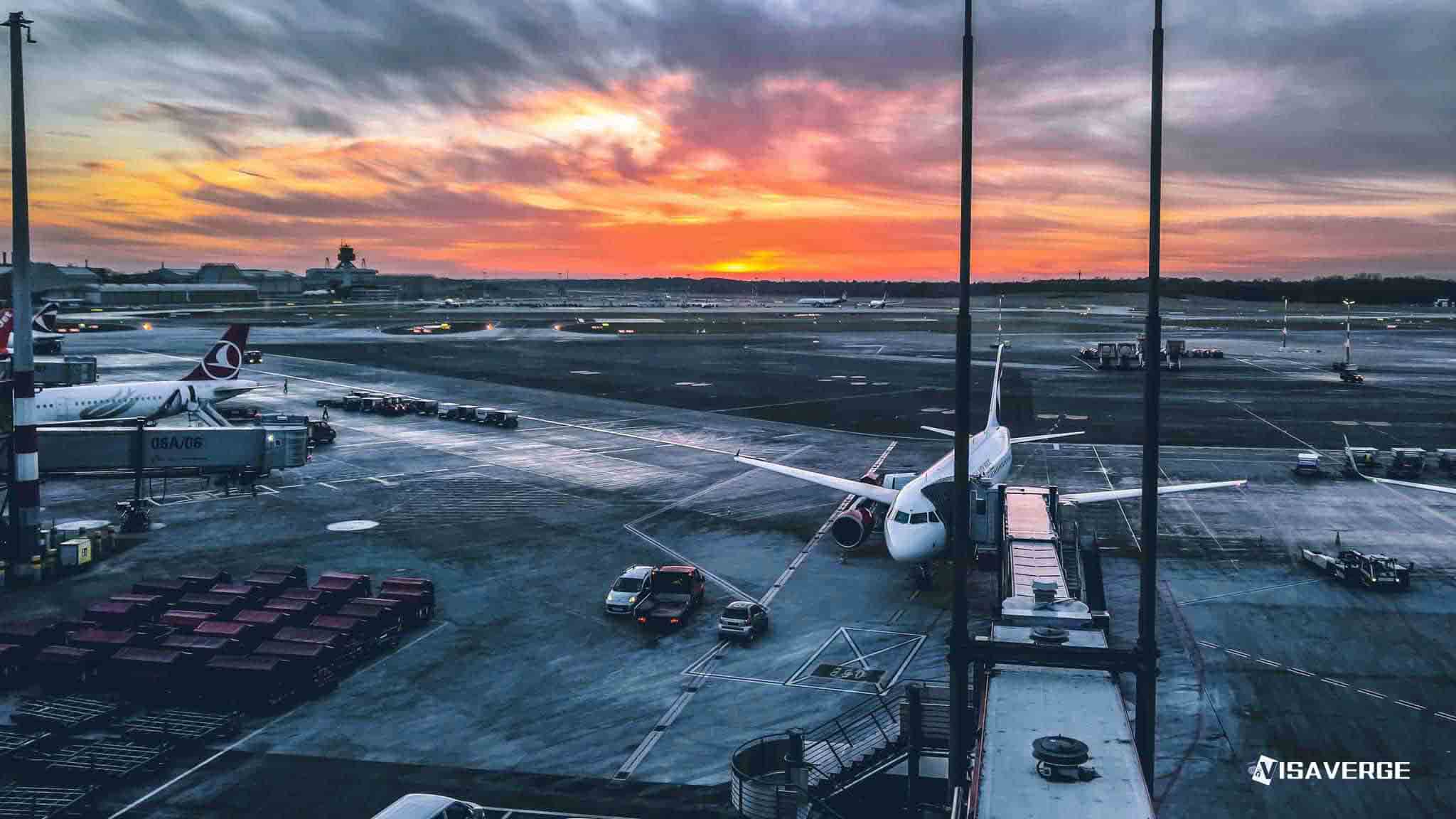Key Takeaways
• ICE raids at Columbia University on March 14, 2025 targeted international, mainly Indian, students for minor infractions.
• Nearly 4,700 international students, around half from India, face deportation proceedings amid increased record terminations.
• Students risk losing legal status for small offenses like speeding; terminated records create legal uncertainty and force court challenges.
In recent months, the United States 🇺🇸 Immigration and Customs Enforcement (ICE) has increased its actions involving international students, with a special focus on Indian students. Columbia University has found itself at the heart of these moves, especially after a raid in March 2025. Many students, along with their families and the colleges they attend, are feeling more anxious about their futures in the country. As reported by VisaVerge.com, this trend raises major questions about how international students are treated and what rights they have while studying in the United States 🇺🇸.
ICE Raids at Columbia University: What Happened?

On March 14, 2025, agents from the Department of Homeland Security, working under ICE, arrived at Columbia University in New York. With a valid search warrant, they entered two student dorm rooms. The university later said that no one was taken away by the agents during this particular operation. However, this action is just one part of a wider plan to enforce public order, especially in response to recent protests at several colleges, including Columbia University.
The protests in question were organized by students, including international ones, who wanted to show their support for Palestine. As enforcement actions continue, it’s clear that not just protesters, but a broader group of students, might face close attention from ICE agents. The recent raid at Columbia University has become a symbol of how college campuses, once seen as safe spots for study, can now become the center stage for tough government measures.
A Broader Crackdown: Effects Beyond Columbia
The story is much bigger than just one school. Across the country, nearly 4,700 international students are currently at risk of being deported due to stepped-up actions by ICE. What stands out in the latest numbers is the share of Indian students involved. Data shows that about half of these students are originally from India. This has sparked concern in the Indian community both in the United States 🇺🇸 and back home in India 🇮🇳. Many fear that honest students may become unintended targets as rules are enforced more strictly.
According to information gathered from the American Immigration Lawyers Association, more than 300 immigration lawyers were surveyed about their current cases. On average, these lawyers said that half of their clients who are facing deportation proceedings are Indian students. In one noteworthy case, an Indian student at Georgetown University faced removal from the country after being accused of taking part in pro-Hamas activities. Even though these high-profile cases grab headlines, for many Indian students, the reason they face trouble with ICE is far less serious.
Minor Offenses Lead to Major Consequences
One part of this story that is drawing increased criticism is the way ICE is revoking the records or status of Indian students for infractions that many people might consider quite small. These actions include:
- Speeding tickets, sometimes for driving only a few miles per hour above the posted speed limit
- Parking in the wrong area without paid authorization
- Other similar, minor rule violations
In the United States 🇺🇸, many citizens would not usually view these actions as major legal problems. However, to ICE, any break in compliance can mean a student loses their right to stay legally. Reports from the same survey of immigration lawyers show that these cases are far more common than ones involving serious crimes or national security risks. As a result, many in the Indian and international student community feel that they are being held to a different and much stricter standard.
New Measures: Terminated Records and Uncertainty
Since January 20, 2025, ICE has started using a new tool against international students: “terminating records.” While the term sounds simple, the outcome is anything but. When ICE terminates the record of a student, several uncertain problems come up:
- The student cannot be sure whether they are still allowed to stay in the country
- Their right to attend class or keep their spot in a program may become unclear
- The chances to move forward with more studies, change to a different school, or find legal work become very limited
Terminating a record is different from arresting or deporting someone right away. Instead, it creates a kind of legal “gray area.” Many students fear that their record can be ended without an in-person meeting or a chance to easily fix paperwork mistakes. Once a student’s record is terminated, they often have no option other than going through the complex U.S. court system. It’s a process that can take many months, cost a lot of money, and leave the student feeling unsure every day about the outcome.
Pressure on Indian Students: More Than Just Numbers
For Indian students, who make up one of the largest groups of international students in the United States 🇺🇸, the pressure is especially heavy. For many, studying at places like Columbia University or Georgetown University is not just about getting a degree. It’s a step toward better job chances, possible citizenship, or being able to help family members back in India 🇮🇳.
When ICE actions make it hard to know whether they can remain in the country legally, the effects go far beyond just the students. Parents, relatives, and even communities in India 🇮🇳 are often deeply connected to the student’s journey. So, every new report of deportations or terminated records can cause fresh worry among those back home.
Legal Struggles and Growing Concerns
It’s not just the fear of being forced to leave that worries students. Without clear legal status, students find everyday life uncertain. They have to wonder:
- Can they complete their semester or will they be removed before graduation?
- Will future employers see them as “risky” if their record is unclear?
- What happens if they need to leave the country for a family emergency—can they return?
Many students now have no other option but to sue ICE in court. At the moment, there are a large number of court cases happening across the country. Students are trying to challenge the way ICE terminated their records or targeted them for minor infractions. Some legal experts worry that this flood of lawsuits could overwhelm the system, causing further delays and making things harder for students, schools, and immigration officials alike.
Potential Long-Term Effects on Universities and the U.S. 🇺🇸 Education System
Colleges such as Columbia University have always attracted students from around the world. When actions by ICE are seen as unfair or too harsh, universities may face trouble:
- Fewer international students may choose to apply, afraid of getting caught in difficult legal situations
- Enrollments could drop, which might hurt college income and the global reputation of U.S. 🇺🇸 universities
- American students could lose out on chances to meet and work with classmates from abroad, making their own educational experience less rich
If Columbia University, and others like it, get known as risky places for international students, it might cause other talented people from around the world to turn to universities in countries like Canada 🇨🇦 or Australia 🇦🇺.
Why Some See Room for Controversy
There is much debate about how ICE should handle minor rule-breaking by students. Supporters of the agency say that laws should be applied equally and that even small rule-breaking when done by someone on a student visa should be taken seriously. They argue that the rules were clear when students first arrived, and that following them is important for national safety and order.
Opponents, which include many immigration lawyers and university officials, think that punishing students with deportation or record termination for small offenses is too harsh. They point out that many U.S. 🇺🇸 citizens break such rules without facing any threat to their future. These critics also argue that current actions could keep talented people from choosing American universities.
Special Impact on Indian Students: Personal and National Feelings
Indian students, more than many others, are feeling the weight of these new enforcement steps. Being such a big part of the international student group, problems they face quickly become national news. Each new story of an Indian student being detained, or sent home for a minor mistake, feeds worry in India 🇮🇳 and can make families rethink sending children to the United States 🇺🇸.
This is even more true for families who have saved money for years to pay for an American education, seeing it as a path to social and economic success. When that dream is put at risk by an unexpected legal action or a terminated record, it can feel like more than just a personal loss—it becomes something that entire communities talk about.
What Indian Students Can Do in the Face of Enforcement
With ICE using new tactics, it’s important for Indian students—and all international students—to know what steps they can take to protect themselves:
- Stay updated on all rules linked to student visas, including those for driving, parking, and campus regulations
- Report any changes in classes, addresses, or personal information to the college’s international office right away
- Keep copies of all important papers, such as visa approval notices and I-20 forms, and make sure they are always current
For those who receive letters or warnings from ICE, the best way to respond is to seek help as soon as possible from legal experts or their college’s immigration advisors.
Universities such as Columbia University often have offices dedicated to international student issues. These offices can help students figure out complex government rules, keep track of their legal status, and answer important questions on staying in the United States 🇺🇸 legally. Detailed, official information about relevant federal guidelines and student visa paperwork, including the key Form I-20, can always be found on the U.S. Department of Homeland Security Study in the States website.
Wider Impact on International Education and Exchange
U.S. 🇺🇸 universities have long depended on students from countries like India 🇮🇳 for the energy and talent they bring. These students often fill key research jobs and help create bridges between the United States 🇺🇸 and other countries.
A sudden rise in enforcement actions, such as those by ICE against Indian students at Columbia University and elsewhere, can quickly undo decades of good will. It is possible that other countries may try to attract these students instead, offering them more safety and clearer rules.
Keeping Students Informed and Safe
In today’s changing environment, it’s more important than ever for international students, colleges, and families to stay informed. Watching news reports and using trusted sources like VisaVerge.com helps students keep track of changing rules and possible problems before they become emergencies.
By working together—sharing information quickly, and reaching out to legal experts—students and schools can try to stay one step ahead of issues like ICE records termination or threats of deportation. This is especially important for Indian students, who are now at the front line of these changes.
ICE’s recent actions at Columbia University, and its stepped-up enforcement against international students across the United States 🇺🇸, show that the landscape is changing fast for students from abroad. Indian students, being a major group at risk, face special challenges and doubts about their future studies and personal plans. Both students and universities must work together, share timely information, and make use of every support available to face this new era of enforcement. As the legal battles continue, keeping eyes open and acting early are the best ways to protect education, dreams, and futures in the United States 🇺🇸.
Learn Today
ICE (Immigration and Customs Enforcement) → A U.S. federal agency responsible for immigration enforcement, border security, and investigating violations of immigration laws.
Terminated Record → When ICE cancels a student’s legal status, putting them in a legal limbo and at risk of deportation.
Form I-20 → An official document international students use to maintain and prove their student visa status in the United States.
Department of Homeland Security (DHS) → The U.S. government department overseeing immigration matters, including ICE and student enforcement actions.
Deportation Proceedings → The formal legal process in which immigrants may be removed from the United States due to violations or loss of status.
This Article in a Nutshell
ICE enforcement at Columbia University has intensified pressure on international students, especially Indians. Even minor rule infractions now risk legal status termination, spreading anxiety on campuses. With nearly 4,700 students at risk, universities and students must urgently seek legal help and stay informed to protect their educational futures.
— By VisaVerge.com
Read more:
• Air India urged government to block IndiGo-Turkish Airlines partnership
• Rohingya refugees flown by Indian authorities toward Andaman Sea
• EB-5 becomes leading path for Indian families seeking US residency
• Indian migrants lose work permits in Canada due to processing delays
• Canada Visa Wait Times Drop for Indians in 2025







